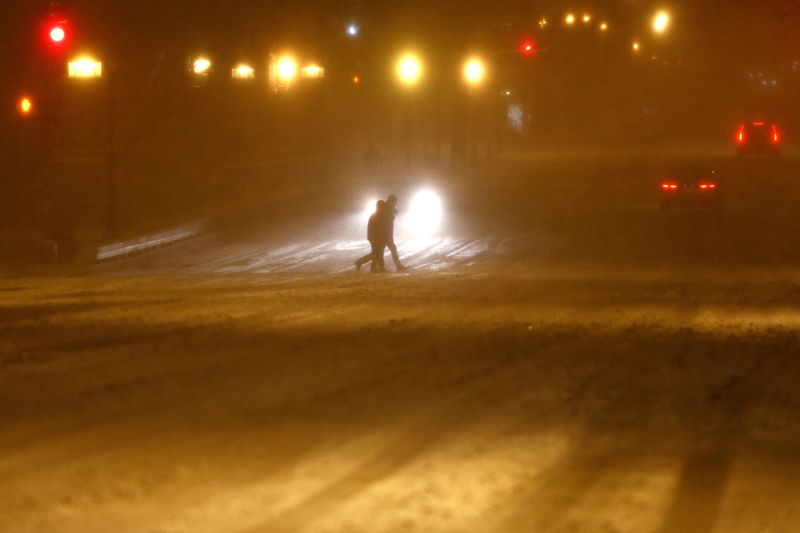MONTREAL, Jan 5 (Reuters) - Large parts of eastern Canada grappled with extreme weather on Friday as temperatures plunged to record lows in Toronto, while heavy winds downed power lines, contributing to power outages affecting more than 85,000 customers in Nova Scotia.
The Nova Scotia Power utility grappled on Friday morning with more than 2,000 active outages, according to the latest data on its website, as eastern Canada reeled from a massive storm with winds hitting around 100 kilometers (60 miles)an hour that moved north on Thursday from the United States.
The fast-developing storm, dubbed by forecasters as a "weather bomb," a "bombogenesis" or "bomb cyclone," had already led to dozens of canceled flights, while closing schools and businesses in parts of eastern Canada.
In Toronto, Canada's largest city, temperatures plunged on Friday to -23 C (-9 F) at 6 a.m. EST at Pearson (LON:PSON) International Airport, for the coldest Jan. 5 on record, Canadian media reported.
Earlier in the week, the cold was said to be a contributing factor in the death of an elderly couple in Ontario who perished outside their barn, local media reported.
Through Friday, as much as 45 centimeters (18 inches) of snow is expected in parts of New Brunswick, while more than 50 centimeters (20 inches) of snow could be dumped on the eastern tip of the Gaspe Peninsula in the province of Quebec, according to Environment Canada.
